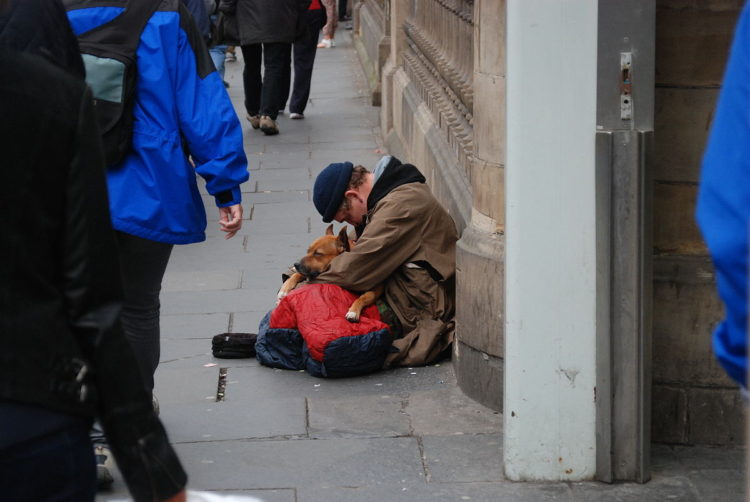By Charlotte Webster-
The Health and Social Care Secretary has announced a £1.9 million funding by Public Health England to help improve the health of rough sleepers.The scheme faces challenges from the start because many rough sleepers sadly want and choose to be in that situation.
Those in genuine pursuit of accommodation will benefit from the scheme , but many will be surprised to discover how many people put themselves on the streets because they see it as a convenient way to earn money from sympathetic passers by which they then use to fund their pathetic drug and alcohol habits. funding is in line with the government’s Rough Sleeping Strategy was announced last August and aims to halve rough sleeping by 2022.
The funding is to be awarded to projects that improve access to health services and continuity of care for people with mental ill-health and substance misuse problems who are sleeping rough or at risk of returning to rough sleeping. Exactly how it will effectively address the problem of rough sleeping remains to be seen. Statistics of rough sleeping in London in 2017 and 2018,50% had mental health needs, 43% had alcohol misuse problems, 40% drug misuse problems.
Drug misuse comes with its own broad problems, and vary in its range among users. Many rough sleepers in the Uk actually have a home to go to, but refer to beg on the streets to support their self inflicted drug and alcohol habits. Many of those who sleep rough experience mental and physical illness and have substance misuse needs. The money will have to be used strategically to prevent it from going to waste. Addressing substance misuse will be a starting point, then using some of the money to train a large percentage of these rough sleepers to pursue a trade, would be a useful developing point.
Rough sleepers face more barriers accessing health services, particularly those living with mental illness or substance misuse. These barriers can contribute to a ‘revolving door’, according to experts, leaving individuals repeatedly in and out of stable accommodation.
The funding aims to help ’ care models where specialist substance misuse or mental health workers run sessions in hostels or day centres ‘outreach’ models where specialist workers support rough sleepers at street level targeted interventions such as peer health advocacy that supports individuals to access and attend health appointments
The NHS Long Term Plan also committed to spending up to £30 million extra over 5 years to meet the health needs of rough sleepers to ensure better access to specialist homelessness NHS mental health support.
Health and Social Care Secretary, Matt Hancock, said:
Most of us can only imagine what it is like to sleep rough and it is devastating that so many aren’t getting the right access to healthcare. Living with a mental health condition or substance misuse while homeless can lead to a vicious cycle of crisis where people can’t get their lives back on track and their health issues remain unsupported.
Today’s announcement, along with our NHS Long Term Plan, will provide a crucial lifeline to those at risk of being left with nowhere to go and is an important step towards achieving this government’s goal of ending rough sleeping for good.
Inequalities Minister, Jackie Doyle-Price, said:
Everyone should have a roof over their head and access to the right health services, no matter who they are. We are determined to stamp out this injustice once and for all.
Understanding the factors that can lead to homelessness and the triggers that can trap people in a pattern of addiction and sleeping rough, coupled with a lack of support for their mental health, is crucial. This funding will help better equip local authorities to protect society’s most vulnerable and ensure no one slips through the net.

